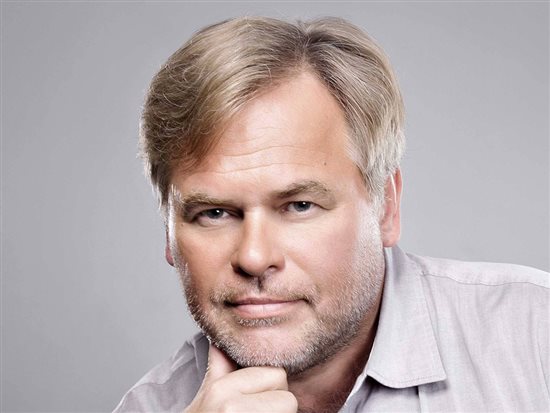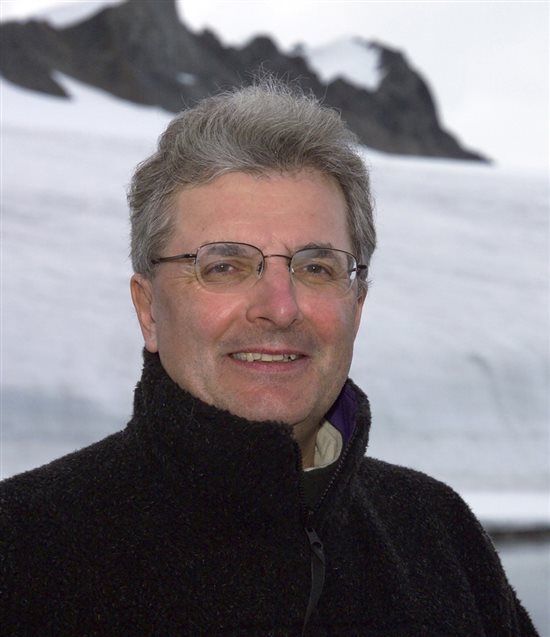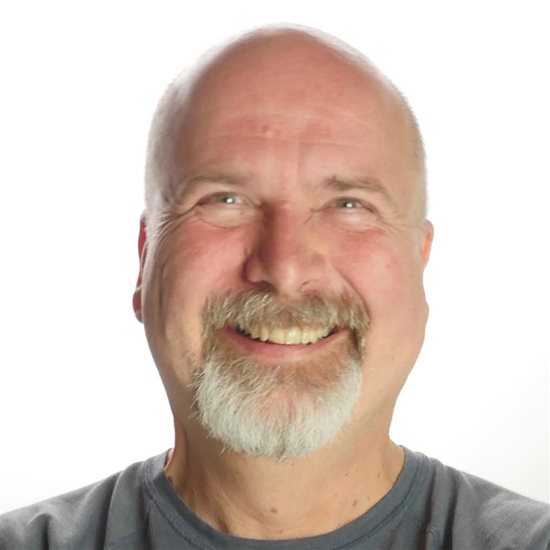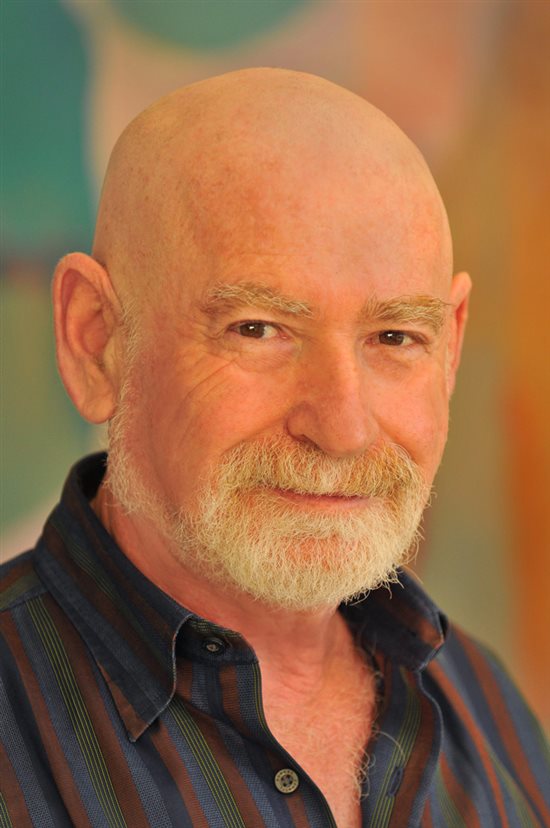I hope many of you will attend the Starmus Festival in Tenerife, Canary Islands, Spain, June 27–July 2, 2016. I have written extensively about the festival in the April issue of Astronomy. In addition to the previous Starmus plans, Garik Israelian has announced a series of high-level talks on global issues — cybersecurity, artificial intelligence, global warming, threat from asteroids, and status of the global economy. For more on Starmus, see starmus.com.
Press release follows . . .
The brightest scientists and creators will get together from June 27 to July 2 in Tenerife and La Palma, in Canary Islands (Spain), to share with the public their latest insights.
CYBERSECURITY, ARTIFICIAL INTELLIGENCE, GLOBAL WARMING, THREAT FROM ASTEROIDS, STATUS OF THE GLOBAL ECONOMY: STARMUS III ANSWERS
Madrid, March 31, 2016. Answers beyond the horizon that the mind cannot apprehend, keys to manage an unknown and fast changing future, understandinguncontrollable threats to the world… To provide information and knowledge on important global issues for managing an uncertain future is ultimately the challenge of Starmus III.
From June 27 to July 2, under the unique stellar sky of the islands of Tenerife and La Palma, in the Canary Islands, "the third edition of Starmus will bring together scientific authorities and the brightest minds in the world to help experts, lovers and those curious about science, to venture into the great enigmas, threats, discoveries and curiosities to which we are exposed today, we realize it or not," said Garik Israelian, astrophysicist and founder-director of Starmus.
Under this approach, Starmus III has brought together the six best experts in research on major global issues: cybersecurity (by Eugene Kaspersky); global warming (by Chris Rapley); artificial intelligence (by Peter Schwartz); man-machine relationship (by Danny Hillis); the threat from asteroids (by Rusty Schweickart) and the evolution of the global economy (by Joseph Stiglitz).
Throughout the week-long Festival, with the presence of twelve Nobel laureates and scientific researchers, along with recognized musical artists, these six experts will present their insights and conclusions on matters of high global interest, inciting reflection and debates.
One of these issues is cybersecurity. We all have a seemingly safe online life, apparently under control. But is it really so? Eugene Kaspersky, chairman and CEO of IT security giant Kaspersky Lab, said: “The world today relies heavily on various digital and networked equipment. Virtually our entire critical infrastructure – power grids, water supplies, transportation – is run by digital machines. In our daily life we increasingly depend on ‘smart’ devices – from phones to cars and homes. But in this dependency lies a problem: most of the software that runs this digital ecosystem is vulnerable to cyberattacks. Much of it was developed without security in mind. And unfortunately we're seeing how various groups of hackers – some of them plain criminals, others likely to be government-backed – are developing sophisticated techniques to attack various digital systems to steal data, money and even cause physical damage. We have built a digital world that offers unprecedented speed and ease of communication and doing business. At the same time tough it is based on the very shaky foundations of insecure computer code.” Dark Ages of Cyber Security is the title of Mr. Kaspersky’s talk in the Festival in which, largely, he will develop this reflection.
Interest in the economy and its evolution has transcended the circles of experts and has showed up in our everyday conversations, especially since 2008, when the world was shaken by the changing economic cycle. "Surprised?," Professor Joseph Stiglitz will ask the audience during his talk Growing inequality: Laws of Nature or Laws of Men? "We shouldn't be. Such cataclysmic events have been part of capitalism from the start. Markets on their own are neither efficient nor stable. And the way markets have been restructured in recent decades has led to lower growth and more instability, with all the benefits of the limited growth that does occur going to a very few at the top,” said Mr. Stiglitz.
The Climate Summit held in Paris in late 2015, revealed the high risk for our planet to the effects of climate change and the consequences of inaction were discussed by 195 countries present there. But to what extent? Chris Rapley, doctor in Astronomy, now a professor of Climate Science at The University College of London and from 2014 chairman of the European Space Agency Director General’s High Level Science Policy Advisory Committee (ESA), he is one of the leading researchers in Europe in climate change. In Starmus III, during his talk Climate Change: What Future will Create?, he will present the current situation on this issue.
Although for a number of years we have been hearing about developments in artificial intelligence, 2016 will mark its definitive take-off. Peter Schwartz, a renowned futurist and business strategist, will approach during his exposure Scenarios for the future of Artificial Intelligence: Will the dream become a nightmare?, at which point we are. Also, on this matter, Danny Hillis, mathematician, engineer and above all, lover of the relationship between technology and man, will address in his talk The Age of Entaglement, the always intriguing subject of whether the machine will exceed humans.
Closing the circle, Rusty Schweickart, former lunar module pilot on the Apollo 9 mission and former chairman of B612 Foundation, dedicated to the challenge of preventing asteroid impacts with Earth, will present in his talk entitled Reflections on Fifteen Years of Planetary Defense, his thoughts after spend the last 15 years in developing a global planetary defense capability. It have led him to the conclusion that “while great progress has been made, the long term ultimate challenge in preventing a future devastating asteroid impact will not be technological, but geopolitical," Mr. Schweickart said.
About Starmus
Starmus Festival was born with the aim of making the most universal science and art accessible to the public. The Festival brings together the brightest minds from astronomy, prominent space travelers, astrophysicists and stargazers with tech business leaders and creative industries thinkers to debate the future of humanity.
After two ground-breaking editions in 2011 and 2014, gathering together the most important representatives of these fields, such as astronaut Neil Armstrong and Professor Stephen Hawking. In this new edition, the Starmus III program will include the participation of twelve Nobel laureates in disciplines such as physics, chemistry, medicine, astronomy, along with other guests of great prestige.
In addition to the lectures, another of the highlights will be the ‘Ask Hawking’ segment, which, as in the previous edition, will enable members of the public to pose questions to the great scientific.
For Further Information:
Marisa Toro Managing Partner
MARLOW -Starmus media partner
marisa.toro@marlowinsight.com
 Eugene Kaspersky
Eugene Kaspersky
Eugene Kaspersky is chairman and CEO of Kaspersky Lab, one of the most recognized and fastest-growing cyber security companies in the world. With more than 3,000 highly-qualified specialists and annual revenues in excess of $700 million, the company has its holding in the United Kingdom and operates in 200 countries and territories.
Kaspersky’s love for mathematics determined his “technical” future. During his last few years in high school, he attended extracurricular classes in physics and mathematics at a specialized program for gifted students organized by Moscow State University. In 1987, he graduated from the Institute of Cryptography, Telecommunications and Computer Science, majoring in mathematical engineering.
In 1989, while he was working at a multi-disciplinary research institute, Kaspersky began studying computer viruses after detecting the Cascade virus on his PC. He developed a disinfection utility for it and he started collecting malicious programs and disinfection modules. This exotic collection later formed the foundation of his famous database in Kaspersky Anti-Virus. Today, it is one of the most complete antivirus databases in the world with more than 1.3 million records.
In 1991, Kaspersky joined the KAMI Information Technologies Center, where he and a group of colleagues developed the AVP antivirus project. International recognition arrived in 1994, when his initiative won a contest conducted by Hamburg University’s test lab, demonstrating a higher virus detection rate than the most popular antivirus programs at the time.
In 1997, Kaspersky and his colleagues decided to establish Kaspersky Lab. He first was in charge of the antivirus research department and in 2007 he was named CEO of the company.
 Professor Chris Rapley
Professor Chris Rapley
Chris Rapley CBE is Professor of Climate Science at University College London. He is a Fellow of St Edmund's College Cambridge, a Distinguished Visiting Scientist at NASA’s Jet Propulsion Laboratory, a member of the Academia Europaea, a Board member of the Winston Churchill Memorial Trust, Chairman of the European Space Agency Director General’s High Level Science Policy Advisory Committee, and Chairman of the London Climate Change Partnership.
His previous posts include Director of the Science Museum London, Director of the British Antarctic Survey, Executive Director of the International Geosphere-Biosphere Programme at the Royal Swedish Academy of Sciences in Stockholm and Head of the Earth Observation satellite group at University College London’s Mullard Space Science Laboratory.
His current interests are in the communication of climate science. With the playwright Duncan Macmillan he wrote and performed at The Royal Court Theatre in London the acclaimed play 2071 – The World We’ll Leave Our Grandchildren, available as a book published by John Murray. Prof Rapley was awarded the 2008 Edinburgh Science Medal for having made “a significant contribution to the understanding and wellbeing of humanity”.
 Danny Hillis
Danny Hillis
Daniel Hillis is the cofounder of Applied Invention, an interdisciplinary group of engineers, scientists and artists that develop technology solutions in partnership with leading companies and entrepreneurs.
He is also the cofounder of Applied Minds, Visiting Professor at the MIT Media Lab, the Widney Professor of Engineering and Medicine of the University of Southern California (USC), professor of research medicine at the Keck School of Medicine, and research professor of engineering at the Viterbi School of Engineering.
Previously, he was Vice President, Research and Development at Walt Disney Imagineering, and Disney Fellow, where he developed new technologies and business strategies for Disney's theme parks, television, motion pictures, Internet and consumer products businesses. He is the winner of many awards, including the Dan David Prize.
An inventor, scientist, engineer, author, and visionary, Hillis pioneered the concept of parallel computers that is now the basis for most supercomputers, as well as the RAID disk array technology used to store large databases. He holds hundreds of U.S. patents, covering touch interfaces, forgery prevention methods, and various electronic and mechanical devices.
As a student at MIT, Hillis began to study the physical limitations of computation and the possibility of building highly parallel computers. This work led to the design of a massively parallel computer with 64,000 processors in 1985, called the Connection Machine. During this period at MIT, Hillis cofounded Thinking Machines Corp. to produce and market parallel computers. In addition to designing the company's major products, Hillis worked closely with his customers in applying parallel computers to problems in astrophysics, aircraft design, financial analysis, genetics, computer graphics, medical imaging, image understanding, neurobiology, materials science, cryptography and subatomic physics. At Thinking Machines, he built a legendary team of scientists, designers and engineers who later became leaders and innovators in multiple industries.
In 2005, Hillis and others from Applied Minds initiated Metaweb Technologies to develop a semantic data storage infrastructure for the Internet, and Freebase, an "open, shared database of the world's knowledge". That company was acquired by Google and became the basis of the Google Knowledge Graph.
Hillis has published scientific papers in journals such as Science, Nature, Modern Biology, Communications of the ACM, and International Journal of Theoretical Physics and has been an editor of several scientific journals, including Artificial Life, Complexity, Complex Systems, and Applied Mathematics. He has also written extensively on technology for publications such as Newsweek, Wired, and Scientific American. He is the author of two books, Connection Machine and The Pattern on the Stone. He is a Member of the National Academy of Engineering, a Fellow of the Association of Computing Machinery, a Fellow of the International Leadership Forum, and a Fellow of the American Academy of Arts and Sciences. He is co-chair of The Long Now Foundation and the designer of a 10,000 year mechanical clock.
 Peter Schwartz
Peter Schwartz
Peter Schwartz is Senior Vice President for Strategic Planning for Salesforce.com. In this role he directs policy and politics throughout the world and manages the organization’s ongoing strategic conversation.
Prior to joining Salesforce he was cofounder and chairman of Global Business Network, a Monitor Group company, and a partner of the Monitor Group, a family of professional services firms devoted to enhancing client competitiveness. An internationally renowned futurist and business strategist, Schwartz specializes in scenario planning, working with corporations, governments, and institutions to create alternative perspectives of the future and develop robust strategies for a changing and uncertain world.
Schwartz is a member of the Council on Foreign Relations, the World Affairs Council and, in Singapore, the Research, Innovation and Enterprise Council. He also sits on the boards of The Long Now Foundation, The Center for New American Security and the Center for Strategic Futures in Singapore.
From 1982 to 1986, Schwartz headed scenario planning for the Royal Dutch/Shell Group of Companies in London. His team conducted comprehensive analyses of the global business and political environment and worked with senior management to create successful strategies. Before joining Royal Dutch/Shell, Schwartz directed the Strategic Environment Center at SRI International. The Center researched the business milieu, lifestyles, and consumer values, and conducted scenario planning for corporate and government clients.
Schwartz is the author of Inevitable Surprises, a provocative look at the dynamic forces at play in the world today and their implications for business and society. His first book, The Art of the Long View, is considered a seminal publication on scenario planning and has been translated into multiple languages. He is also the co-author of The Long Boom, a vision for the world characterized by global openness, prosperity, and discovery; When Good Companies Do Bad Things, an examination of, and argument for, corporate social responsibility; and China's Futures, which describes very different scenarios for China and their international implications.
He publishes and lectures widely and served as a script consultant on the films The Minority Report, Deep Impact, Sneakers, and War Games.
Schwartz received a B.S. in aeronautical engineering and astronautics from Rensselaer Polytechnic Institute (RPI). In 2009 he received an honorary PhD and was the commencement speaker at RPI.
Follow Dave Eicher on Twitter, and please check out his Author Page on Facebook.